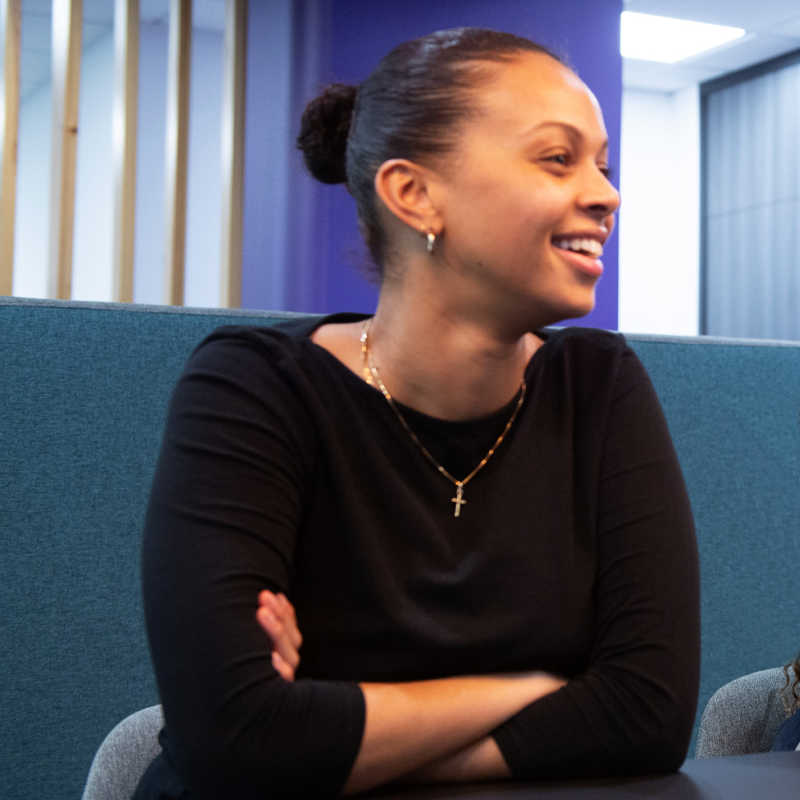Eliminate unconscious bias to recruit the best talent
All managers must be able to recruit and select talent in a way that overcomes the unconscious biases we’re all influenced by. In doing so, leaders will hire and promote from a more diverse pool of talent, improving the overall quality and diversity of an organisation.
EW Group’s bespoke inclusive recruitment training specifically tackles unconscious bias in talent selection. It draws on almost 30 years of experience in developing fair best practices in attraction, recruitment, and retention processes.
Diversity in Leadership
Companies with at least 30% of women in leadership or executive positions adds 6% to net margin
Performance
Diverse businesses are 35% more likely to financially outperform their industry’s national average
Approach
Our approach to unconscious bias in recruitment and selection
From design to delivery, EW Group ensures its training aligns with your business case and organisational culture. Both our virtual and face-to-face courses offer your staff an immersive experience —featuring an innovative live interview scenario with a real job candidate.
Interactive, pragmatic and engaging, delegates leave our workshops with the ability and confidence to find practical applications for their knowledge of unconscious bias, diversity, and inclusion in everyday workplace situations.

Fast-paced, engaging, upbeat delivery
Encouraging full understanding for a better recruitment process
With engaging delivery and simulations that reinforce the business benefits of responding correctly to unfair and unwanted bias, you can be sure your managers will leave with the knowledge they need for effective recruitment, including:
- Understanding of the types of unconscious bias and their impact
- Awareness of the power of assumption, association, and preference
- Appreciation of what drives ideas of ‘cultural fit’ in an organisation
- Practical tools to design fair and clear selection criteria
- Confidence in managing bias in decision-making and interviews
- Ability to identify unconscious bias in others and challenge it
- Familiarity with the legal essentials and latest research into bias
Inclusive Recruitment Open Course
We also offer a one-day open course in recruitment that runs regularly throughout the year. This course is ideal for HR team members and any staff with recruitment responsibilities. It covers the five key elements of inclusive recruitment and delegates gain a set of practical tools to apply to their day-to-day work.
OPEN COURSE IN RECRUITMENT
What our clients say
LIVE VIDEO INTERVIEWS
Learning through experience
Our interactive live video interview exercises are specially designed to illustrate how unconscious bias operates, and the impact it can have on recruitment and selection. Your managers will become the panel of a simulated interview and closely observe one another. EW Group’s expert facilitator then highlights the subtle ways in which unconscious bias can affect the hiring process.
With a simulated candidate in the room, our facilitator is able to create a safe and constructive environment in which to consider and critique your managers’ behavioural tendencies. The exercise will reduce anxieties around unconscious bias in recruitment and selection, and empower leaders to address the issue head-on.
Recruitment & Selection Training FAQs
Why is there unconscious bias in recruitment and selection?
We are all affected by some form of unconscious bias. When under pressure, it is easy for interviewers to take shortcuts, reverting to established associations and finding natural affinities with candidates who are most like them. This bias can lead to the recruitment of staff who mirror the recruiter. Interviewers also tend to become less flexible and culturally adaptable in their approach, making it less likely for them to harness their candidate’s best potential. Luckily, however, this bias can be reduced by taking conscious steps to combat it.
Why should we address recruitment bias?
Workforce diversity has a measurable effect on business performance. Whether it’s based on gender, race, ability or any other trait, diverse teams are more innovative, more productive and perform better in problem-solving. Developing genuine awareness of how unconscious bias operates — and practical tools to minimise it — is key to your organisation harnessing its diverse talent pool. This will ensure diverse candidates can progress in your company, support your managers to have open, honest and constructive conversations with their employees, and sensitively unpick their everyday interactions at work.
What does a recruitment and selection training course involve?
Our unconscious bias in recruitment and selection training is a one-day course that will teach your delegates the theory as well as practical ways to avoid it. The course is comprised of four key elements:
- Legal context, company procedure, and effective recruitment preparation
- Sifting and shortlisting candidates fairly and without bias
- Live interviews, highlighting bias in the process
- Post-interview considerations
Does recruitment and selection training work?
Finding the best talent for your organisation is crucial to its success, and unconscious bias hinders this. To battle its impact, recruitment managers need to be aware of their bias, understand its consequences, and find effective methods to avoid it. Recruitment and selection training does all of this (and more) in an efficient way, allowing your delegates to utilise leading techniques and best practices in their process, making it a powerful activity to eliminate bias.




